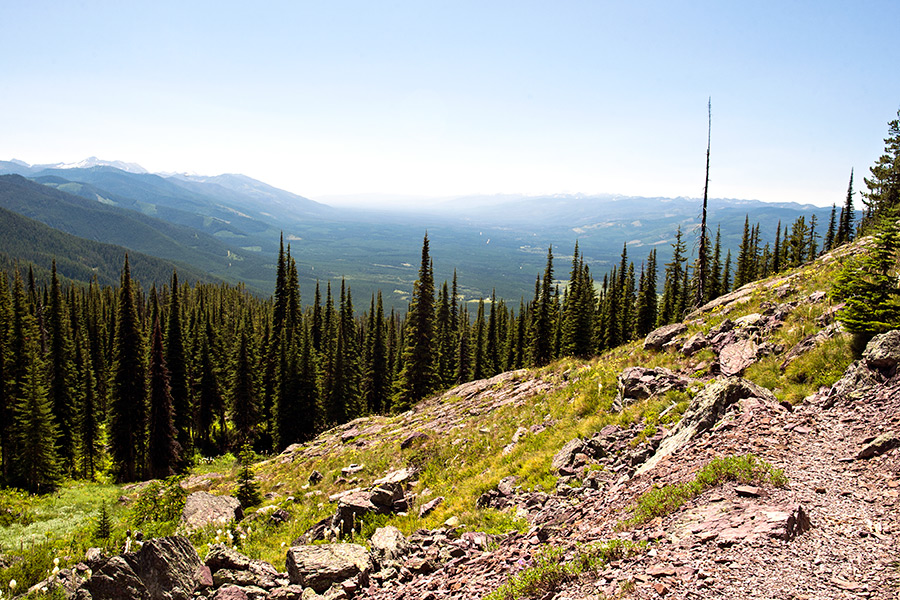Oregon Standoff Highlights Rift Over Federal Land Control
While some in Northwest Montana express support for local control of federal lands, they say Oregon militia group has gone too far in armed takeover
By Justin Franz
More than a week ago, a group of armed ranchers and self-described patriots took over a federal wildlife reserve in rural Oregon to protest the imprisonment of two men convicted of burning government land.
While the imprisonment of father-and-son duo Dwight and Steven Hammond proved to be the spark that lit the powder keg for a vocal group of anti-government protestors, the Hammonds represent only a small portion of the dispute over federal land control across the American West.
The leader of the Oregon occupation, Ammon Bundy (son of Nevada rancher Cliven Bundy, who forced a standoff with federal agents in 2014), has called for the federal government to hand over control of its land to state and local governments. Bundy believes that the federal government frequently harasses private landowners, users and ranchers. Others share his opinion across the West, including in Northwest Montana.
“The current system of federal land management is failing America in every regard and something must be done,” said state Sen. Jennifer Fielder, a Republican from Thompson Falls who has been an outspoken proponent of transferring land from the federal government to the states.
Fielder notes that in the eastern part of the country, states control 95 percent of public lands, but west of the Rockies, states only control 50 percent. She believes Montana could do a better job of managing public lands while offering more access. During the last session, she introduced legislation to study the transfer of public lands but Gov. Steve Bullock vetoed the bill.
Prior to Bullock vetoing Senate Bill 215, it was the subject of a contentious debate in Helena, with many conservation groups opposing the effort. Critics of land transfers said its supporters were oversimplifying the issue. State Rep. Ed Lieser from Whitefish worked for the U.S. Forest Service for 30 years and called the transfer of public lands a “reckless” and “radical” idea that would never succeed and could actually result in a loss of public access.
“The people behind these efforts don’t understand the challenges faced by federal management agencies,” he said. “I believe if they did understand the challenges there might be greater empathy.”
Lieser said that regardless of who was managing the land the costs of doing so would remain the same and that in some cases a single state may not be able to cover it. He said he worried about the possibility of public lands being sold off to private owners, thus reducing access even more.
One group supporting the efforts to transfer federal lands to the states is Montanans for Multiple Use, led by Clarence Taber, a former U.S. Forest Service employee. Taber believes the state could do a better job of managing public lands and points to Forest Service efforts to fight larger wildfires. Statistics show fighting larger wildfires are chewing through more of the federal agency’s budget every year. Taber said the Forest Service should manage the forests more aggressively with more timber and thinning projects.
“Everything is so overregulated today and agenda driven. They don’t do any actual forest management these days,” Taber said.
State officials have said Montana could not bear the financial burden of managing federal lands.
Local supporters of transferring federal land are sympathetic toward the militia group in Oregon, but question the way in which they are trying to be heard.
“The Hammonds have been tried as terrorists and it’s unbelievable. That’s why you’re seeing an uprising like this,” Fielder said. “But I don’t agree that taking over a federal building is the right way to go about this. I think there are other solutions here. I don’t believe what they’re doing is going to resolve any issues.
“I wish they would focus their energy in the policy arena rather than taking the extreme actions that they’ve taken,” she added.
Regardless of how the situation unfolds in Oregon, both sides of the federal land debate agree that it’s an issue that will not fade away anytime soon.
“We’ll always see discontent with how federal lands are managed,” Lieser said. “Some people will like how it’s done and some people won’t.”